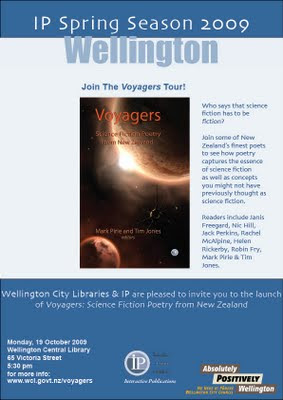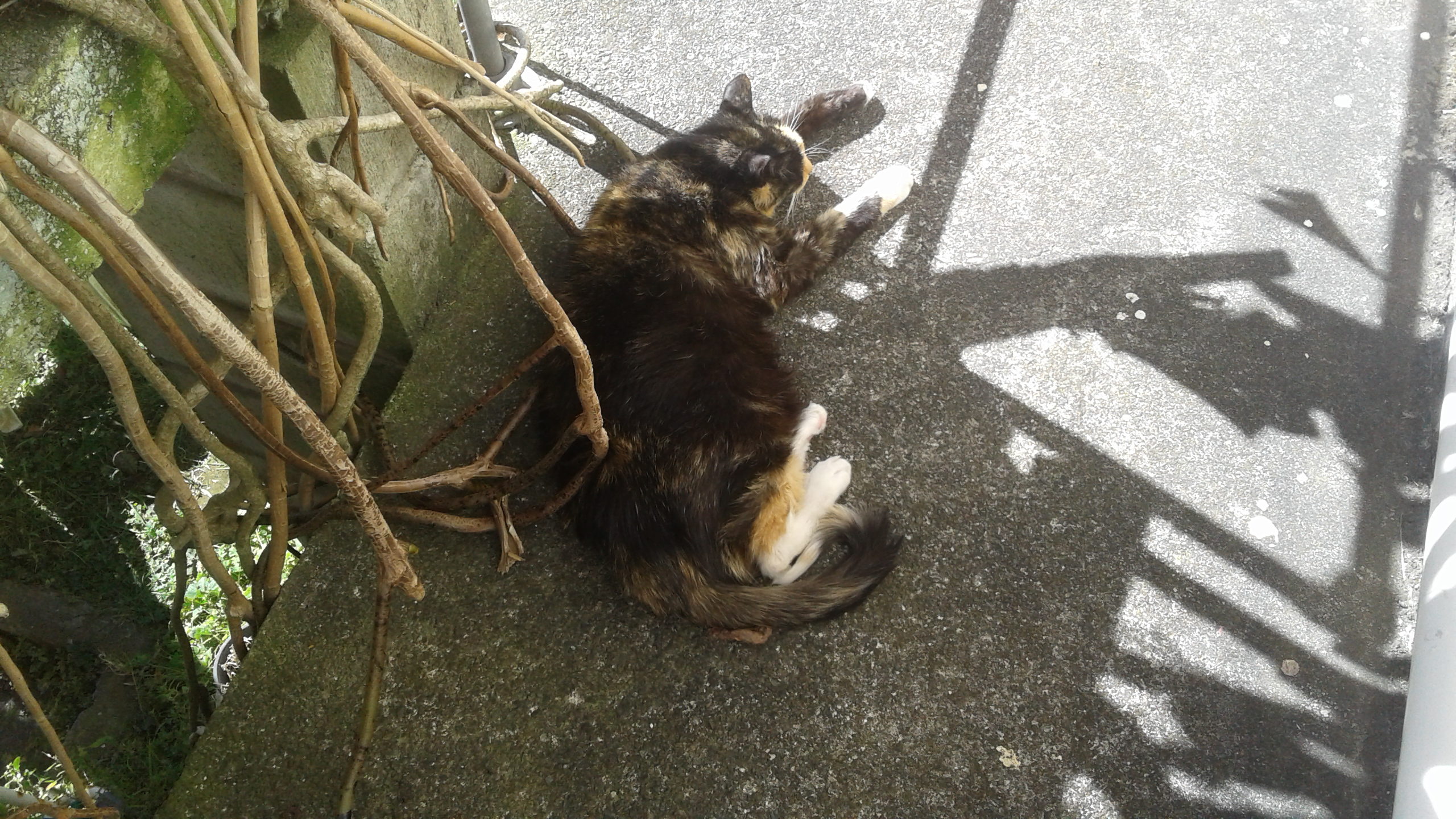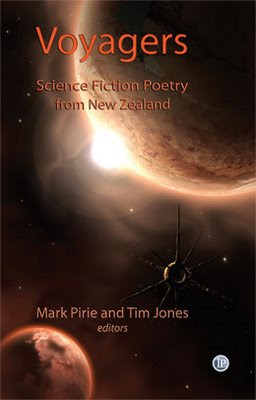Here is the lineup of venues and readers for the Voyagers Book Tour of New Zealand. Like any lineup of readers, this one is subject to change – but I am very much encouraged by the enthusiasm Voyagers poets around the country have shown to take part in the tour.
Unfortunately, it wasn’t possible to organise a Hamilton event on the tour.
It’s a real fillip for the tour that Voyagers has received a very good review in the latest issue of the New Zealand Listener (October 10-16, pp. 40-41). I’ll get some quotes from the review up here as soon as I can.
Voyagers Tour Events: Venues and Readers
Dunedin Public Library, First Floor, 14 Oct, 5:30 pm. Join Sue Wootton, James Dignan, Tim Jones, David Karena-Holmes and IP Director Dr David Reiter to kick off the national tour of Voyagers: Science Fiction Poetry from New Zealand – plus open mike for science fiction poetry.
Dunedin, Circadian Rhythm Café, 72 St Andrew St, 15 Oct, 7 pm. Our event here will feature Sue Wootton, Jenny Powell, James Dignan, David Eggleton, David Karena-Holmes, Tim Jones and David Reiter – plus open mike for science fiction poetry.
Christchurch, Madras Café Books, 165 Madras St, 16 Oct, 5 pm, with Owen Marshall, James Norcliffe, David Gregory, Tim Jones and David Reiter – plus open mike for science fiction poetry.
Wellington Central Library, 19 Oct, 5:30 pm, with Janis
Freegard, Robin Fry, Helen Rickerby (tbc), Jack Perkins, Rachel McAlpine, Jane Matheson, Harvey Molloy, Marilyn Duckworth, Tim Jones, Mark Pirie and David Reiter
Kapiti Coast, Paraparaumu Library, 179 Rimu Road, 20 Oct, 5:30 pm for 6 pm,
featuring Puri Alvarez, Nic Hill, Harvey Molloy, Helen Rickerby, Michael O’Leary, Janis Freegard and David Reiter – plus open mike for science fiction poetry.
Auckland Central Library, 22 Oct, 5.30pm, , with Raewyn Alexander, Jacqueline Ottaway, Iain Sharp, Michael Morrissey, Anna Rugis, Alastair Paterson, Iain Britton, Thomas Mitchell, Janet Charman and David Reiter
Devonport, Depot Arts Space, 28 Clarence Street, 24 Oct, 6:30 pm, with Iain Britton, Alistair Paterson, Andrew Fagan, Janet Charman, Anna Rugis, Thomas
Mitchell and David Reiter – plus open mike for science fiction poetry, if time permits.

Interactive Publications and New Zealand
Voyagers follows hot on the heels of IP’s first New Zealand releases, Harmonic by Stephen Oliver and the Text + Audio CD by Stephen Oliver and Matt Ottley, King Hit. Based in Brisbane, IP is Australia’s most innovative independent publisher. It publishes about 24 titles per year and is one of the few independents regularly supported by the Australia Council.
IP’s Director, the noted author Dr David Reiter, whose most recent books are Primary Instinct, a satire on the education system, and the children’s novel Global Cooling, will spearhead the tour, which will also showcase New Zealand authors Iain Britton’s new poetry collection Liquefaction and Euan McCabe’s sports memoir The World Cup Baby.
For more information regarding Voyagers or to schedule an interview before the tour begins, please email info@ipoz.biz or call +61 (0)7 3324 9319. During the tour, Dr Reiter can be contacted via SMS to his mobile +61 (0)412 313 923 or email to reiterdr1@me.com.



